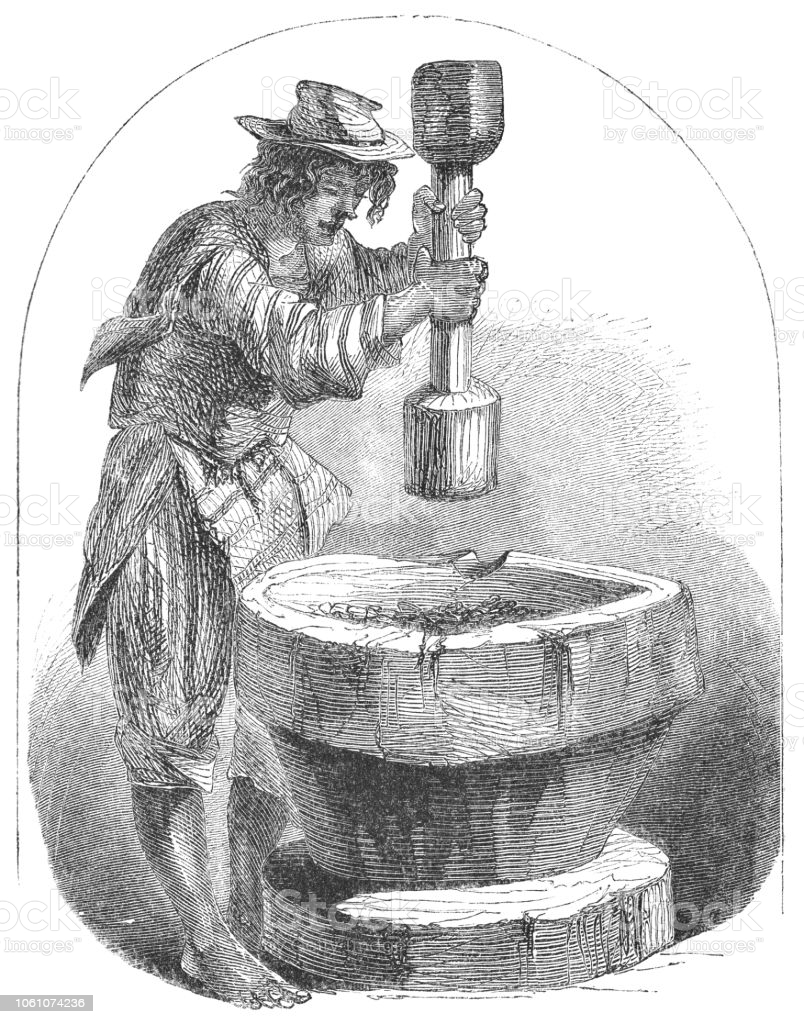Hello friends of #freewritters, today I want to share with you an imaginary story based on one of the songs that is already part of Venezuelan folklore, a piece popularized by the composer and musician Hugo Blanco, it is about: Grinding coffee
Aunque la canciòn es corta, tiene una cadencia pegajosa y tropical difìcil de olvidar para los que crecimos oyèndola muchas veces.
En mi imaginario, quise recrear una historia de amor entre dos afrodescendientes: èl liberto, ella esclava. A continuaciòn la letra de la pieza en la que se basa la historia.
Although the song is short, it has a catchy and tropical cadence that is hard to forget for those of us who grew up listening to it many times.
In my imagination, I wanted to recreate a love story between two Afro-descendants: he free, she a slave. Here is the letter of the piece on which the story is based.
Y en su quietud los cafetales
Vuelven a sentir
Esa triste canción de amor
De la vieja molienda
Que en el letargo de la noche
Parece gemir
Una pena de amor, una tristeza
Lleva el sambo Manuel en su amargura
Pasa incansable la noche
Moliendo café
Cuando la tarde languidece
Renacen las sombras
Y en su quietud los cafetales
Vuelven a sentir
Esa triste canción de amor
De la vieja molienda
Que en el letargo de la noche
Parece gemir
Una pena de amor, una tristeza
Lleva el sambo Manuel en su amargura
Pasa incansable la noche
Moliendo café
And in its stillness the coffee plantations
They feel again
That sad love song
From the old grind
That in the lethargy of the night
Seems to moan
A pain of love, a sadness
carries the sambo Manuel in his bitterness
Spend the night tirelessly
Grinding coffee
When the evening languishes
The shadows are reborn
And in its stillness the coffee plantations
They feel again
That sad love song
From the old grind
That in the lethargy of the night
Seems to moan
A pain of love, a sadness
carries the sambo Manuel in his bitterness
Spend the night tirelessly
Grinding coffee
.
A finales de la època colonial, donde era comùn ver haciendas y fincas llevadas adelante por trabajo esclavo, a los pies de los Andes, en el piedemonte barinés, vivìa Manuel Josè un negro zambo liberto al que su amo habìa dado la libertad por salvarle la vida en el paso de un rìo, ademàs le ofreciò unas hectàreas de tierras de cafè para que las trabajara por su cuenta y asì pudiera aspirar a un mejor futuro.
Manuel José le agradeciò profundamente el gesto y aceptó con entusiasmo la propuesta.
At the end of the colonial era, where it was common to see farms and estates run by slave labor, at the foot of the Andes, in the Barinese foothills, there lived Manuel Josè a freed black sambo who his master had given his freedom to save his life. life in the passage of a river, he also offered him a few hectares of coffee lands so that he could work them on his own and thus he could aspire to a better future.
Manuel José deeply thanked him for the gesture and enthusiastically accepted the proposal.
Sin embargo estaba triste por que no estarìa cerca de Adelaida, una joven esclava de la misma hacienda, de la que estaba enamorado. A pesar de ello se diò animo, ahora estarìa trabajando en su propia plantaciòn de cafè, lo que le permitirìa comprar Adelaida a su antiguo amo para casarse con ella y ofrecerle formar una familia en una tierra propia donde tendrían hijos libres.
Para hacerle la propuesta más atractiva al señor de la hacienda el zambo Manuel le ofreció molerle por las noches el cafè tostado de esa temporada después de trabajar en su cafetal.
However, he was sad that he would not be so close to Adelaida, a young slave from the same farm, with whom he was in love. Despite this, he was encouraged, now he would be working on his own coffee plantation, which would allow him to buy Adelaida from his former master to marry her and offer her to start a family in a land of their own where they would have free children.
To make the proposal more attractive to the lord of the hacienda, the sambo Manuel offered to grind the roasted coffee for that season at night after working in his coffee plantation.
El amo de Adelaida aceptò la primera cosecha de cafè de Manuel a cambio de la libertad de Adelaida y le pagarìa el trabajo de la molienda con un par de mulas que lo ayudarìan en su faena. A pesar de parecerle un buen trato, Josè Manuel vivía apesadumbrado por estar lejos de su amor y se consolaba cantando canciones de sus ancestros y contando los dìas en que Adelaida y el estarìan juntos.
El olor del cafè recién molido y la buena cosecha lo acercaban a su meta.
Adelaida's master accepted Manuel's first coffee crop in exchange for Adelaida's freedom and would pay him for the grinding work with a couple of mules to help him in his work. Despite seeming to be a good deal, Josè Manuel lived sad to be away from his love and consoled himself by singing songs of his ancestors and counting the days when he and Adelaida would be together.
The smell of freshly ground coffee and the good harvest brought him closer to his goal.
Here is the audio performed by the Venezuelan singer Mirla Castellano, in case you want to hear the song.
¡Gracias por leer!/ Thanks for read

